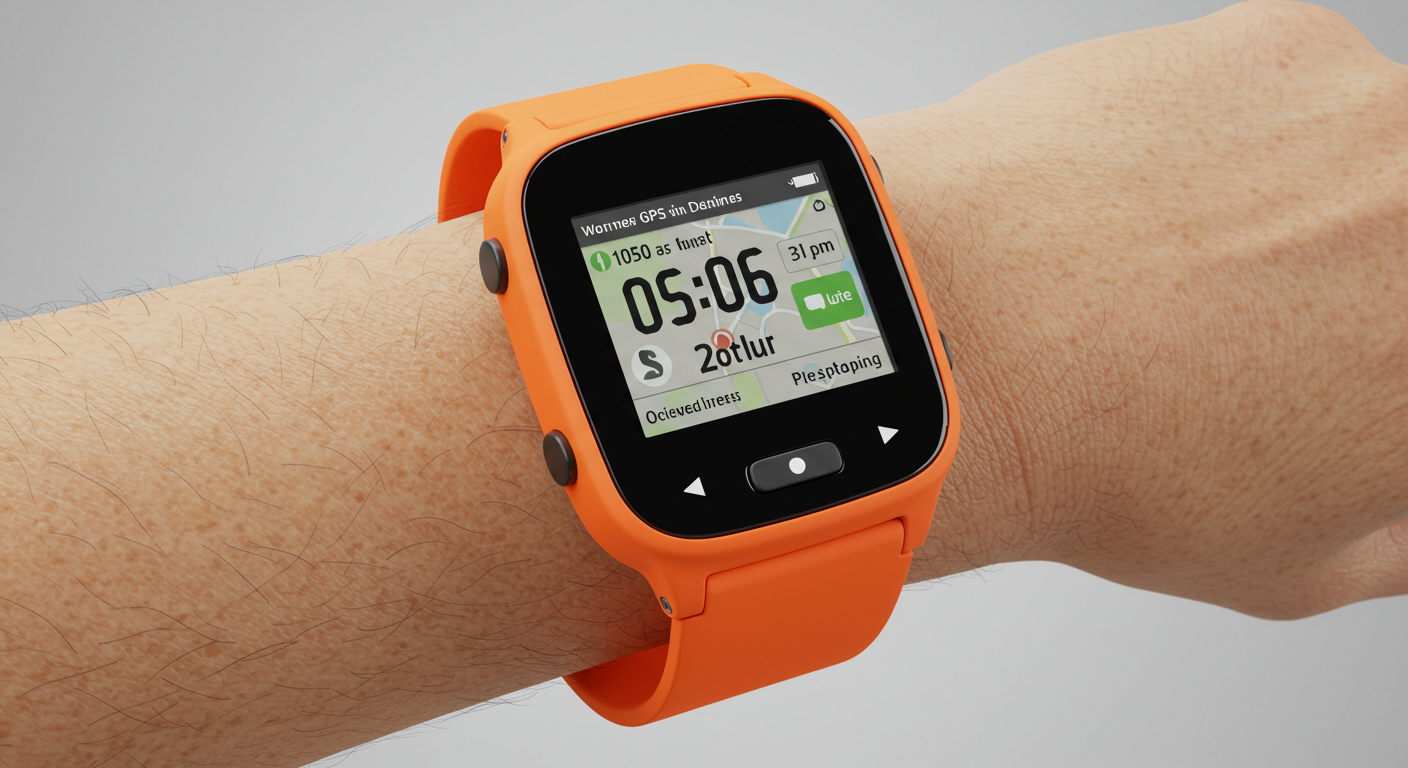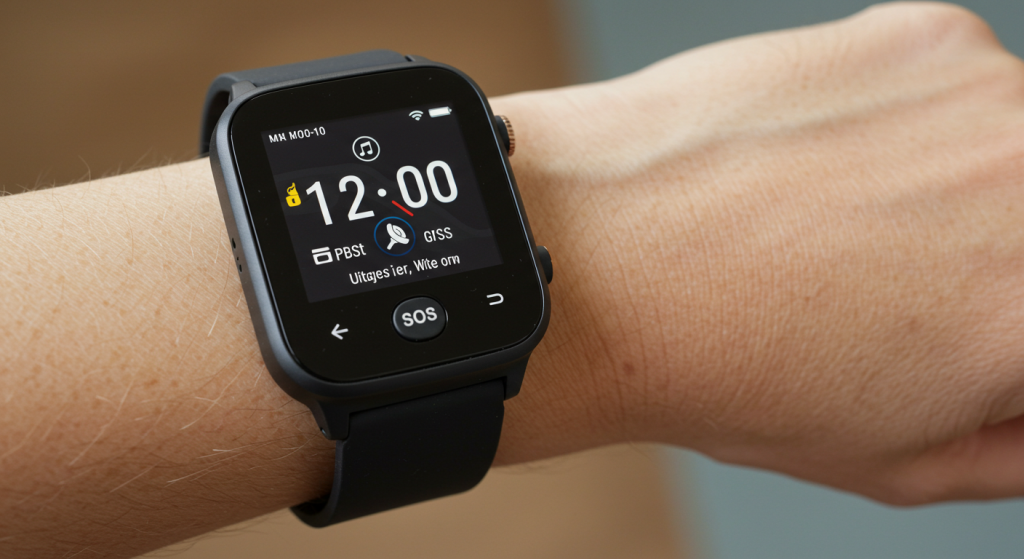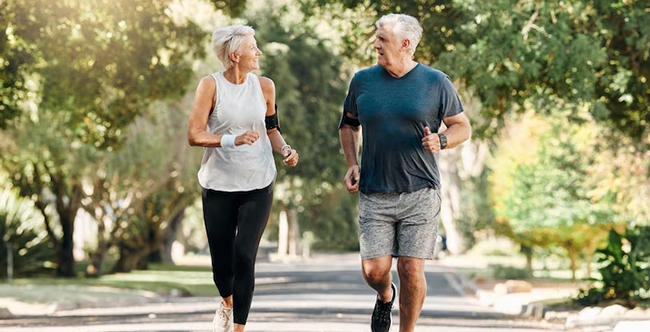Anyone Tried a GPS Watch for Dementia Patients? A Overview
2025-07-06

Wandering in Dementia Patients
Although wandering may seem like an aimless activity, it usually has some kind of direction to it, which is often concealed behind the fogged memories of a person suffering from dementia. The individual may wish to retrace their steps, follow a bygone habit, or they may just feel restless. Alarming as it may sound, the Alzheimer’s Society estimates that up to 60% of individuals with dementia are likely to wander at some point. Has anyone tried a GPS watch for dementia patients? This staggering number emphasizes the need for efficient devices meant to prevent wandering in dementia patients.
Advanced Functionalities
Modern trackers incorporate an array of sophisticated technologies, such as GPS watches, which provide real-time tracking similar to smartphones and execute advanced functionalities deeply integrated into modern-day devices:
– Cellular Connectivity: Most devices integrate a SIM card, enabling them to transmit data over cellular networks. Location data wirelessly sent through phone-like mechanisms ensures real-time transmission and tracking. Information collection happens at secure servers, which then gets fed into dedicated apps on caretakers’ phones or accessed via web portals.
– Wi-Fi Triangulation: Many modern GPS watches now incorporate indoor tracking through Wi-Fi triangulation. With the use of detecting nearby networks, these watches can scan for known hotspots, which allows them to estimate a user’s location even when a direct signal is weak or unavailable, for example, inside buildings or dense urban areas.
– Bluetooth Low Energy (BLE): For larger homes and care centers, some indoor trackers make use of BLE for short-range tracking. These BLE trackers can connect to small beacons, which are placed around the premises, providing more accurate location data within a limited range.
– Geofencing Alerts for Dementia Caregivers: This groundbreaking feature offers caregivers advanced tools for setting up safe zones or virtual boundaries on the maps, such as homes, local parks, and neighborhoods. Immediate alerts will be sent to caregiver phones the instant they detect persons within or outside the safe zones, making real-time monitoring very efficient. Such proactive notifications are very helpful in preemptively addressing wandering dementia issues before they escalate into crises.
Considering the Best GPS Watch for Patients with Dementia
Selecting the best GPS-integrated timepiece for a parent with dementia can be difficult because there are many options available on the market. Consider some of these popular alternatives as we explore essential buying parameters. As you think about these or other brands, ask yourself.
• Battery Life: How often does it need charging? For the user and primary caregiver, is that manageable?
• Ease of Use: Can they wear it? Will the caregiver find operating it easy enough?
• Features: Is your requirement two-way communication, fall detection, Geofencing, or a combination of several features?
• Durability and Water Resistance: Accidentally splashed or showered on – do such daily normal activities damage the watch?
• Comfort and Aesthetics: Look good, feel good – will motivate them for daily workouts.
• Monthly Subscription Fees: Most recent GPS-stimulated monitors come along with a minimal payment to connect to mobile services as well as share location information.
• Customer Support: Is there dependable technical assistance available during support hours?
Technical Deep Dive: A Preview of the Technology
The efficiency and dependability of these tools stem from technical matters that work behind the scenes in addition to the intuitive interface:
• GPS Accuracy: Certain modern GPS chipsets, such as MT3333, are able to provide accuracy levels within 10 meters under open sky conditions. However, accuracy can be hindered by urban canyons (tall buildings), dense foliage, or indoor settings.
• Multi-Network SIMs: Numerous devices make use of multi-network SIM cards, which automatically switch between available networks (for instance, 4G and 3 G) to ensure access to strong signals and wide coverage even in remote locations.
• Sensors for Fall Detection: Sophisticated algorithms that process data from accelerometers and gyroscopes, which measure velocity changes and rotational direction, respectively, distinguish real falls from routine body movements to reduce false alerts.
• IP Ratings: This is the Ingress Protection rating concerning a device’s protection from dust and water. An IP67-rated device can be considered “dust tight” and immersed in water up to 1 meter for 30 minutes.

Are GPS Watches Effective and Safe?
Equally important, “Are GPS watches safe for dementia patients?” poses ethical questions about privacy. Looking at it through a safety lens, GPS watches do serve the purpose of increasing safety. They provide means for immediate location and intervention, thereby decreasing the chances of disorientation, accidents, or exposure to harmful elements. Many studies, like ISRCTN registered pilot programs, are focused on determining whether or not GPS trackers improve the quality of life in dementia patients while reducing the burden on caregivers. Initial findings support their use, suggesting these devices help advance the period during which individuals with dementia can live independently within the community.
GPS Wrist Watch for Elderly – Real-Time Tracking & Emergency Alerts
The L16 GPS wristwatch for the Elderly was created specifically with senior security in mind, incorporating critical functions such as real-time geographic tracking and emergency notification calls. Crafted to support older adults’ independence, it alleviates user and caregiver anxiety through its ease of use, coupled with powerful functionality.
Health Tracking & Monitoring | Long Battery Life
Pressing the SOS button will notify emergency contacts in seconds. This smartwatch feature is crucial during times of confusion or medical distress, ensuring help can be requested easily and quickly. This GPS-enabled watch gives autonomy while providing essential protection for seniors in home care or assisted living facilities.
Aside from offering emergency assistance, modern family members or caregivers are empowered with access to real-time GPS tracking of users. This is notably beneficial for people who suffer from memory problems or are prone to wandering.
To provide maximum comfort, the L16 has a lightweight and ergonomic design, allowing for all-day wear. It is IP66 waterproof and has durable features, making it last through daily routines and activities. In addition, its long-lasting battery enables extended use without constant recharging.
Core Features
• Emergency Call-for-Help: Instantly notifies emergency contacts with one button press.
• Real-Time GPS Tracking: Keeps caregivers informed of the wearer’s live location at all times.
• Health Monitoring: Tracks vital signs like heart rate and activity levels to support wellness.
• Ergonomic & Comfortable Design: Lightweight and shaped for comfort; suitable for continuous wear.
• Waterproof (IP66): Protects against splashing water, sweat, and light showers.
• Extended Battery Life: Reduces the need for charging due to prolonged usage.
Conclusion
Beyond GPS tracking devices for people diagnosed with Alzheimer’s, other assistive technologies include geriatric surveillance systems such as smart home sensors, voice-activated assistant systems, and electronic medication dispensers. To learn more about dementia care or related topics, visit relevant organizations such as The Alzheimer’s Association or build your knowledge on JiAi.






